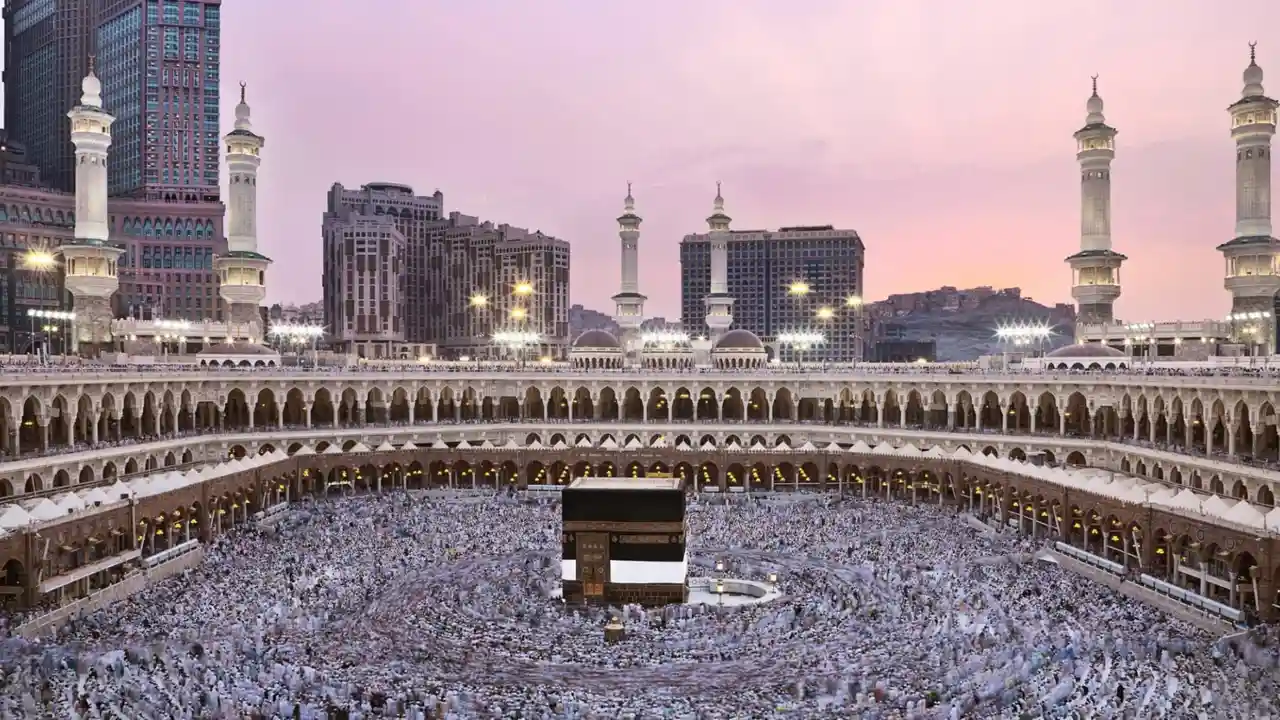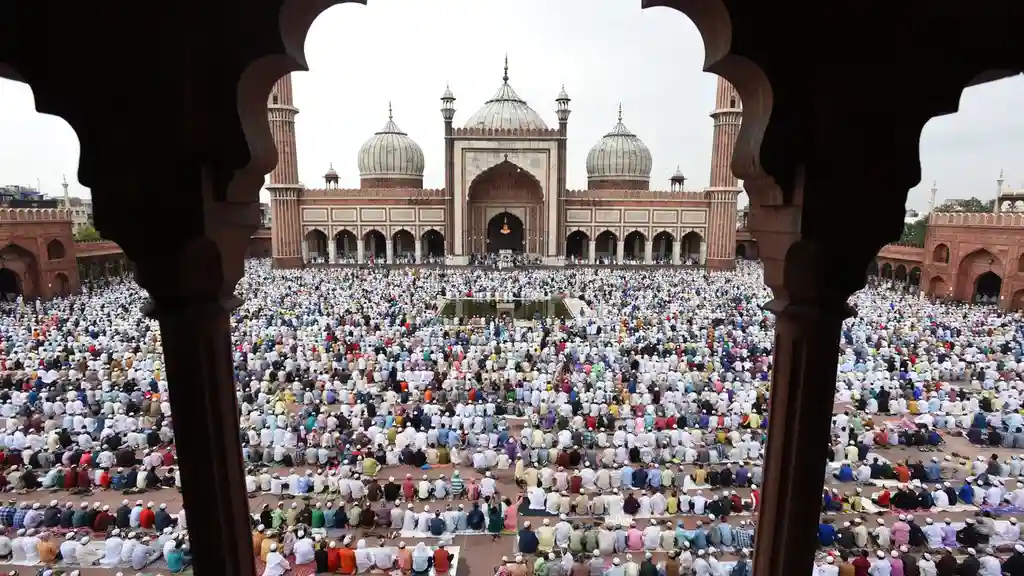
Planning Your Saudi Adventure A Comprehensive Guide
So, you're planning a trip to Saudi Arabia? Fantastic! The Kingdom is a land of incredible contrasts, blending ancient history with modern ambition. From the bustling souks of Riyadh to the serene beaches of the Red Sea, Saudi Arabia offers a unique travel experience. But before you pack your bags, let's dive into some essential tips to ensure your first visit is smooth, enjoyable, and culturally enriching.
Tip 1 Understanding Saudi Culture and Customs
Saudi Arabia is a deeply conservative country with a rich cultural heritage rooted in Islamic traditions. Respecting local customs is paramount. This doesn't mean you have to completely change who you are, but rather be mindful of your actions and appearance.
Dress Code Modesty is Key
Both men and women should dress modestly. For women, this generally means wearing loose-fitting clothing that covers the shoulders and knees. While an abaya (a loose-fitting robe) is not legally required for female tourists, it’s advisable to wear modest clothing, especially when visiting religious sites or more conservative areas. Headscarves are generally not required unless you are entering a mosque. Men should avoid wearing shorts or sleeveless shirts in public.
Public Behavior Respectful Interactions
Public displays of affection are generally frowned upon. During the holy month of Ramadan, eating, drinking, and smoking in public during fasting hours are strictly prohibited. It's also important to be respectful of prayer times, as shops and businesses may close temporarily for prayers.
Greetings and Etiquette The Art of Connection
When greeting someone, a simple "As-salamu alaykum" (peace be upon you) is a common and respectful greeting. Handshakes are generally acceptable between men, but it's best to wait for a woman to extend her hand first. Avoid using your left hand when giving or receiving items, as it's considered unclean in Islamic culture.
Tip 2 Mastering Saudi Visa Requirements and Travel Documents
Obtaining the correct visa is crucial for entering Saudi Arabia. The process has become significantly easier in recent years, but it's still important to understand the requirements.
Tourist Visa Options The Gateway to the Kingdom
Saudi Arabia offers several types of visas for tourists, including the e-visa and the visa on arrival (for eligible nationalities). The e-visa is the most convenient option, allowing you to apply online and receive your visa electronically. The visa on arrival is available at certain airports for citizens of select countries. Check the official Saudi Ministry of Foreign Affairs website for the most up-to-date information on visa requirements and eligibility.
Required Documents and Application Process
Regardless of the visa type you choose, you'll need a valid passport with at least six months of validity remaining. You may also need to provide proof of accommodation, a return ticket, and travel insurance. The application process typically involves filling out an online form, uploading required documents, and paying a visa fee.
Travel Insurance Essential Protection for Your Trip
Travel insurance is highly recommended for all travelers to Saudi Arabia. It can protect you against unexpected medical expenses, trip cancellations, lost luggage, and other unforeseen events. When choosing a travel insurance policy, make sure it covers medical emergencies, repatriation, and any specific activities you plan to participate in, such as desert safaris or diving.
Product Recommendation: World Nomads Travel Insurance. World Nomads offers comprehensive travel insurance plans specifically designed for adventurous travelers. Their plans cover a wide range of activities and offer 24/7 emergency assistance. Use Case: Sarah, a first-time visitor to Saudi Arabia, purchased a World Nomads travel insurance policy before her trip. She unfortunately contracted a minor illness during her travels. Thanks to her insurance, she was able to receive prompt medical attention and didn't have to worry about the cost of treatment. Pricing: Varies depending on the length of your trip, your age, and the level of coverage you choose. Expect to pay around $50 - $150 for a two-week trip. Comparison: World Nomads vs. Allianz Travel Insurance. World Nomads is generally preferred for adventurous travelers due to its comprehensive coverage for activities like hiking and diving. Allianz Travel Insurance may be a better option for travelers seeking basic coverage at a lower price point.
Tip 3 Navigating Transportation in Saudi Arabia
Getting around Saudi Arabia can be an adventure in itself. While public transportation is available in major cities, it's not always the most convenient option for tourists.
Renting a Car Freedom on the Open Road
Renting a car is a popular option for exploring Saudi Arabia, especially if you plan to visit multiple cities or venture into the desert. Several international car rental companies operate in Saudi Arabia, including Hertz, Avis, and Budget. You'll need a valid driver's license and an international driving permit to rent a car. Be aware that driving conditions can be challenging, especially in larger cities, so drive defensively.
Ride-Sharing Apps Convenient and Affordable
Ride-sharing apps like Uber and Careem are widely available in major cities and offer a convenient and affordable way to get around. These apps allow you to book a ride, track your driver's location, and pay electronically. They're a great option for short trips within the city.
Taxis Traditional Transportation Option
Taxis are also available in Saudi Arabia, but it's important to negotiate the fare before you start your journey. Make sure the driver uses a meter or agree on a price beforehand to avoid any misunderstandings. Taxis are generally more expensive than ride-sharing apps.
Public Transportation Buses and Trains
Public transportation in Saudi Arabia is still developing. Buses are available in major cities, but they can be crowded and confusing to navigate. The Haramain High-Speed Railway connects Mecca and Medina to Jeddah and King Abdullah Economic City, offering a fast and comfortable way to travel between these cities. Future expansion plans include connecting Riyadh to the network.
Tip 4 Mastering the Arabic Language Basic Phrases for Travelers
While English is spoken in many tourist areas, learning a few basic Arabic phrases can greatly enhance your travel experience and show respect for the local culture.
Essential Arabic Phrases
- As-salamu alaykum (Peace be upon you) - Greeting
- Wa alaykum as-salam (And peace be upon you) - Response to greeting
- Shukran (Thank you)
- Afwan (You're welcome)
- Na'am (Yes)
- La (No)
- Min fadlik (Please)
- Kam hatha? (How much is this?)
- Ayna al-hammam? (Where is the bathroom?)
Useful Apps and Resources for Language Learning
Several apps and online resources can help you learn basic Arabic phrases. Duolingo, Memrise, and Rosetta Stone offer interactive language lessons. Google Translate can also be helpful for translating words and phrases on the go.
Tip 5 Exploring Saudi Cuisine A Culinary Adventure
Saudi Arabian cuisine is a delightful blend of Middle Eastern and North African flavors. Be prepared for a culinary adventure filled with fragrant spices, tender meats, and delicious desserts.
Must-Try Saudi Dishes
- Kabsa: A flavorful rice dish cooked with meat (usually chicken or lamb) and spices.
- Mandi: Slow-cooked meat (usually lamb) served on a bed of rice, often cooked in an underground oven.
- Mutabbaq: A savory stuffed pancake filled with meat, vegetables, and eggs.
- Shawarma: Thinly sliced meat (usually lamb or chicken) marinated in spices and roasted on a vertical spit, served in a pita bread with various toppings.
- Dates: A staple food in Saudi Arabia, dates are often served with coffee or tea.
Recommended Restaurants and Food Experiences
For an authentic Saudi dining experience, try visiting local restaurants or souks (markets). Many restaurants offer traditional seating arrangements, where you sit on the floor and eat with your hands. Be sure to try Saudi coffee (gahwa), a strong and bitter coffee flavored with cardamom and other spices. A popular restaurant in Riyadh is Najd Village, known for its traditional Saudi cuisine and ambiance. In Jeddah, try Al Baik, a famous fast-food chain known for its fried chicken.
Tip 6 Staying Connected Internet Access and Communication
Staying connected is essential for most travelers. Saudi Arabia has a well-developed telecommunications infrastructure, but it's important to understand your options for internet access and communication.
SIM Cards and Mobile Data
The easiest way to stay connected is to purchase a local SIM card. Several mobile operators offer SIM cards for tourists, including STC, Mobily, and Zain. These SIM cards typically come with pre-loaded data and minutes. You can purchase a SIM card at the airport or at mobile phone stores in major cities. Make sure your phone is unlocked before you arrive in Saudi Arabia.
Product Recommendation: STC Tourist SIM Card. STC offers a special tourist SIM card with generous data allowances and local call minutes. It's a convenient and affordable option for staying connected during your trip. Use Case: John, a business traveler, purchased an STC tourist SIM card upon arrival in Riyadh. He was able to use the data to stay connected with his colleagues, access email, and use navigation apps. Pricing: Approximately 150 SAR (40 USD) for a 30-day SIM card with 20GB of data. Comparison: STC vs. Mobily. STC generally offers better coverage in rural areas, while Mobily may offer slightly faster speeds in urban areas. Consider your travel itinerary when choosing a SIM card.
Wi-Fi Availability
Wi-Fi is widely available in hotels, restaurants, and cafes in major cities. However, the quality of Wi-Fi can vary. Some hotels may charge for Wi-Fi access. If you rely heavily on internet access, it's best to purchase a local SIM card with data.
Communication Apps WhatsApp and Other Options
WhatsApp is the most popular messaging app in Saudi Arabia. It's a great way to stay in touch with friends and family back home. Other popular communication apps include Telegram and Signal.
Tip 7 Understanding Saudi Currency and Payment Methods
The currency of Saudi Arabia is the Saudi Riyal (SAR). It's important to understand the exchange rates and payment methods available.
Currency Exchange and ATMs
You can exchange currency at banks, exchange bureaus, and at the airport. ATMs are widely available in major cities and accept most major credit cards. It's advisable to have some cash on hand for smaller purchases and for use in areas where credit cards are not accepted.
Credit Cards and Mobile Payments
Credit cards are widely accepted in hotels, restaurants, and larger stores. However, smaller shops and souks may only accept cash. Mobile payment options like Apple Pay and Samsung Pay are also becoming increasingly popular.
Tipping Etiquette
Tipping is not as common in Saudi Arabia as it is in some other countries. However, it's customary to tip waiters in restaurants (around 10-15% of the bill) and taxi drivers (rounding up the fare). Tipping hotel staff is also appreciated.
Tip 8 Exploring Saudi Arabia's Top Tourist Attractions
Saudi Arabia offers a wealth of historical, cultural, and natural attractions. From ancient ruins to modern skyscrapers, there's something for everyone to enjoy.
Riyadh The Capital City
Riyadh is the capital city of Saudi Arabia and a bustling metropolis. Key attractions include the Masmak Fortress, a historic fortress that played a crucial role in the unification of Saudi Arabia; the National Museum of Saudi Arabia, which showcases the country's history and culture; and the Kingdom Centre Tower, a modern skyscraper with a sky bridge offering panoramic views of the city.
Jeddah The Coastal Gem
Jeddah is a vibrant coastal city on the Red Sea. It's known for its historic Al-Balad district, a UNESCO World Heritage Site with traditional architecture; the Jeddah Corniche, a scenic waterfront promenade; and the King Fahd Fountain, the tallest fountain in the world.
Medina The Holy City
Medina is one of the holiest cities in Islam and the site of the Prophet Muhammad's tomb. Non-Muslims are not allowed to enter the central area of Medina, but they can visit the outskirts of the city and admire the architecture.
Mecca The Holiest City
Mecca is the holiest city in Islam and the destination of the annual Hajj pilgrimage. Non-Muslims are not allowed to enter Mecca.
AlUla Ancient Wonders
AlUla is an ancient city in northwestern Saudi Arabia with stunning rock formations and historical sites. Key attractions include Hegra, a UNESCO World Heritage Site with well-preserved Nabataean tombs; Dadan, the capital of the Dadan and Lihyan kingdoms; and Jabal AlFil (Elephant Rock), a unique rock formation resembling an elephant.
Tip 9 Staying Safe and Healthy in Saudi Arabia
Saudi Arabia is generally a safe country for tourists. However, it's important to be aware of potential risks and take precautions to stay safe and healthy.
Health Precautions Vaccinations and Medical Advice
Consult your doctor before traveling to Saudi Arabia to ensure you have the necessary vaccinations. Meningitis vaccination is required for visitors arriving for Hajj and Umrah pilgrimages. It's also advisable to get vaccinated against hepatitis A and typhoid. Drink bottled water to avoid waterborne illnesses. Be aware of the risk of heatstroke, especially during the summer months. Stay hydrated and avoid strenuous activities during the hottest part of the day.
Safety Tips General Precautions
Be aware of your surroundings and avoid walking alone in poorly lit areas at night. Keep your valuables secure and avoid displaying expensive jewelry or electronics. Dress modestly to avoid unwanted attention. Respect local customs and laws. Be cautious when driving, especially in larger cities. Avoid political discussions and be respectful of religious beliefs.
Emergency Contacts and Resources
In case of an emergency, dial 911 for police, ambulance, or fire services. The US Embassy in Riyadh and consulates in Jeddah and Dhahran can provide assistance to American citizens. Keep a copy of your passport and visa in a safe place. Inform your family or friends of your travel itinerary.
Tip 10 Respecting Local Laws and Regulations
It's essential to be aware of and respect Saudi Arabia's laws and regulations. Violating these laws can result in serious consequences.
Prohibited Items and Activities
The import and consumption of alcohol are strictly prohibited in Saudi Arabia. Possession of drugs is also illegal and can result in severe penalties. Gambling is prohibited. Public displays of affection are generally frowned upon. Photography of government buildings, military installations, and sensitive areas is prohibited.
Ramadan Guidelines
During the holy month of Ramadan, Muslims abstain from eating, drinking, and smoking from dawn to sunset. Non-Muslims are expected to respect this tradition and avoid eating, drinking, and smoking in public during fasting hours.
General Etiquette
Be respectful of religious sites and avoid making loud noises or engaging in disruptive behavior. Dress modestly when visiting religious sites. Avoid taking photographs of people without their permission. Be mindful of your language and avoid using offensive or disrespectful terms.
:max_bytes(150000):strip_icc()/277019-baked-pork-chops-with-cream-of-mushroom-soup-DDMFS-beauty-4x3-BG-7505-5762b731cf30447d9cbbbbbf387beafa.jpg)






